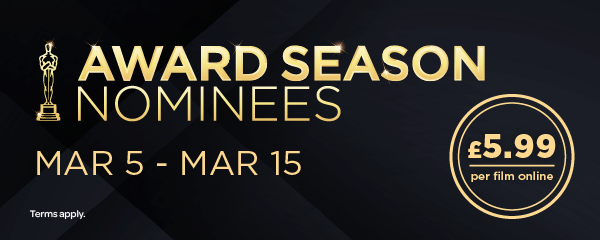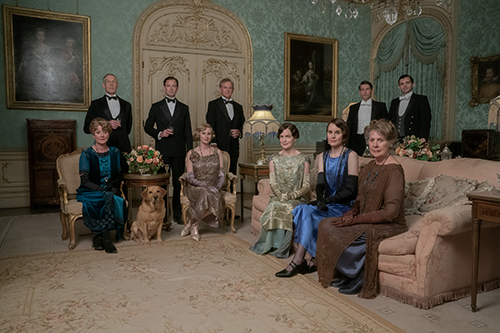
Downton Abbey: A New Era sweeps Downton obsessives into an exciting generation of multifaceted change and character revelations.
Julian Fellowes' smash-hit TV series was first translated into a movie in 2019. Following that film's blockbuster success, A New Era picks up the various threads of the Crawley Estate, pitching its much-loved characters in different directions and on different emotional tangents.
As Downton itself plays host to a bold new talking pictures production, several high-ranking members of the household are off to the south of France. There lies the backstory of the splendidly acidic Violet Crawley (the irrepressible Maggie Smith) whose emotional unravelling is key to the latest Downton instalment.
Also key to the movie's impact is the sumptuous, stirring score from composer John Lunn who has been with the franchise since its small-screen inception. A melodic master whose work has graced projects on screens both big (Once Upon a Time in the Midlands) and small (the critically acclaimed Bleak House), Lunn is as integral a member of the Downton estate as anybody else.
We caught up with him to discuss the creation of that unmistakeable Downton Abbey main theme. John also discussed the challenges of diversifying his musical approach in A New Era, and how his score reflects the modernistic changes facing all the various members of the Downton household.
Your music has long been a fixture of the Downton Abbey franchise, going way back to when Julian Fellowes first created the TV series. What were the initial conversations about creating the musical voice for Downton?
Well, it all kicks off in 1912 and I already knew a lot of Elgar and Vaughan-Williams. I did listen to those quite a bit. But I felt it made the music too overwrought and complicated at times. Too complex for what was required for Downton.
The producers were keen on something they described as 'modern.' I did start looking at the music of Philip Glass. I was already a big fan of his anyway. I started doing a post-graduate thesis on Philip Glass in 1979 when I was still at Glasgow University. But although it helped me to begin with, the notion went out of the window pretty quickly.
In fact, I didn't realise I was doing it at the time, but the theme tune is more like a pop song. The harmony is much more like a pop song albeit played by a classical orchestra. It's got the veneer of a classical piece but it's not really. It's poppier.
It's got a hook to it. That's what people remember about great film and TV scores. Is that then quite adaptable in terms of what you do with it throughout the TV series and the two movies?
Totally. The 30-second theme that you hear at the beginning of every episode has four main elements to it.
The pumping strings, and it also had a solo piano tune. [Hums Downton Abbey main theme] Then, between the piano lines, there's a rising string line that's much more emotional. [Hums strings] And then there's a section where the chords really branch out into something nobler, or even pompous.
Those four elements became the basis of the music for quite a lot of the series. In fact, you can still hear it in the latest movie. We're still using it, even 10 years later.
I'm always really interested in music's ability to carry inherent conventions. It's certainly true that the Downton theme conveys a sense of 'Englishness', so I wondered what your thoughts were on that?
I think people have come to identify that music with England in retrospect, really. If you look back on it, 10 years ago, would you say it was quintessentially English? I'm not sure.
Harmonically, I'd say it's more like Ravel. And there are a few jazz elements in it. Minor ninth chords and stacked thirds, stuff like that. But I think it's become 'quintessentially English' precisely because the show and the movies are so popular.
When it came to writing the score for A New Era, what were the conversations you had with Julian Fellowes and the rest of the filmmakers in terms of being loyal to the theme and also expanding the musical palette?
There were three main storylines that were going to need new music. One of them was the introduction of the film crew as they arrive at Downton Abbey and all the shenanigans that are involved. That needed a kind of upbeat, kind of Hollywood, jazzy, brash, 'we're going to conquer the world with the next big thing' sound.
Then, when the characters go to the south of France, that was going to need another strand. And then there was the material for the last 10 minutes of the movie, which is pretty moving. Most of the stuff in-between could kind of be taken care of by the material we'd built up over the years.
To begin with, I thought the south of France material would be the trickiest bit. But, actually, it was fine in the end. To be honest, it was all fine in the end. In terms of the film crew and the France sections, we were aware that people have got so used to the music in Downton Abbey. What I didn't want to do was make people think they were in a completely different movie.
In terms of the jazzy, big band sections depicting the film crew, I wondered if you had a background in jazz?
My father was in a jazz band as a sax player. There was lots of jazz in the house and I studied music at university. I've always been a big fan of Miles Davis and Charlie Mingus and Bill Evans. Over the years, I've had to write quite a few things in that style, but I'm not a professional jazz musician.
You have to adapt to a lot of different musical idioms in the score for A New Era, so that must be very exciting?
Yeah, it was good for me. What I'm happiest about is the sheer contrast between all the different things that are going on. There was much more musical scope for me in this movie than there was in the first Downton movie.
In the first movie, everyone was keen to not chuck the baby out with the bathwater. We wanted to make it feel like a Downton episode, and it succeeded. But once we'd done that, there was a collective feeling from Julian and everybody that we wanted to be able to go off and explore other things.
Going off to the south of France was a particularly good idea. That's what I'm most pleased with as far as this score is concerned. The sheer amount of contrast.
You worked with the Chamber Orchestra of London for the score. Was that a close collaboration?
I've worked with them for 20-odd years. My orchestrator, Alastair King, who also conducted, was in charge of taking my computerised versions of my ideas and making it readable for the players. He did a fantastic job.
The musicians were fantastic as well. I know quite a lot of them as well, which helps. We had a lot of fun recording it. We had more time than we needed, which was a bit of a shock to me. We were never under any pressure, which is great.
Did you record this Downton score during lockdown?
We did it in early December 2021, so we couldn't have done it at a better time! We were just ahead of Omicron by a week.
We had some limitations. We were only allowed to record 70 people at once at AIR Studios. There were times when I needed over 80. So, we had a special day where we overdubbed an extra 10 to 15 instruments on top. But we didn't need to social distance either. We were incredibly lucky.
You said that you recorded at AIR Studios, which is famous for its beautifully expansive ambience. Does it impart more personality on the score in terms of where you record the music?
Yeah, it does. I've only worked with this size of orchestra at either AIR Lyndhurst or Abbey Road Studio One. It's hard to tell the difference between the two studios. They're both fantastic.
We hardly use any fake reverb. We have some mics up in the roof capturing the ambiance of the room and that's ultimately what we use in the score to give it some depth. They're both great rooms.
The two climactic tracks, 'Cortege' and 'Next Generation' are, for me, the highlights of the score. I loved your use of the choir, which I suppose is something quite different for the music in Downton Abbey?
It was completely new. To be honest with you, I was nervous about it to begin with. We did record the choir completely separately. We mixed a version without the choir in case the producers suddenly thought, 'Maybe this is not the sound of Downton.'
When I wrote it, I did put the choir part in and everyone seemed to like it. And when we actually recorded it, the choir sounded so great. It's justified at that moment in the movie. It's a big moment.
That said, the choir is quite discreet. It's not a rousing chorus. It's subtly blended into the orchestra. The scene is not a tragedy. It's moving but it's the culmination of a well-lived life. That's what I was trying to get across.
There are several tracks showcasing your collaboration with the vocal artist Cherise. How did that come about?
It was really in the script that they were going to have a dance in the south of France. We did a bit of research as to what was needed.
I think Cherise was suggested to me by somebody on the production who vaguely knew her. She's an ex-pupil of Trinity Laban, and I've got an honorary doctorate from there. Somebody sent me a YouTube video of her and I thought she was great. She did a little demo and we all loved it.
It was really quite simple in the end. We decided to do it without a drummer, just a bass, guitar, piano, sax and her. It feels right. I'm not entirely sure how historically accurate it is, but it feels right.
In your mind, what makes a successful dramatic score for film and/or television? Is it an outer commentary on what we're watching or is it about getting beneath the surface of the characters?
Getting beneath the surface of the characters, without a doubt. When I'm asked to do music for a scene, I always ask the director, "What are we missing here? What is in this scene that we don't already see?" I don't want to replicate what we're already seeing or feeling.
I want to really enhance something, or give something a different meaning. To make us question as to whether a character truly means what they say. Does the character, in fact, mean something else? That's how I'm using the music. I'm 'undermining' the drama in a way and questioning it. I find that drags a listener in.
If you got the call to do Downton Abbey: Act III, would you be there like a shot?
Oh yeah. We're like a big family now. I don't know how I'd feel handing the music over to somebody else. It would be a bit of a poisoned chalice, I have to say. If they do another one, I'll definitely do it. No question.
Click here to book your tickets for Downton Abbey: A New Era, which is on release now in Cineworld cinemas.
Enjoyed our review? Impressed by John Lunn's score? Send us your thoughts @Cineworld.
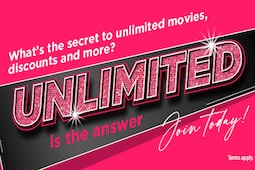
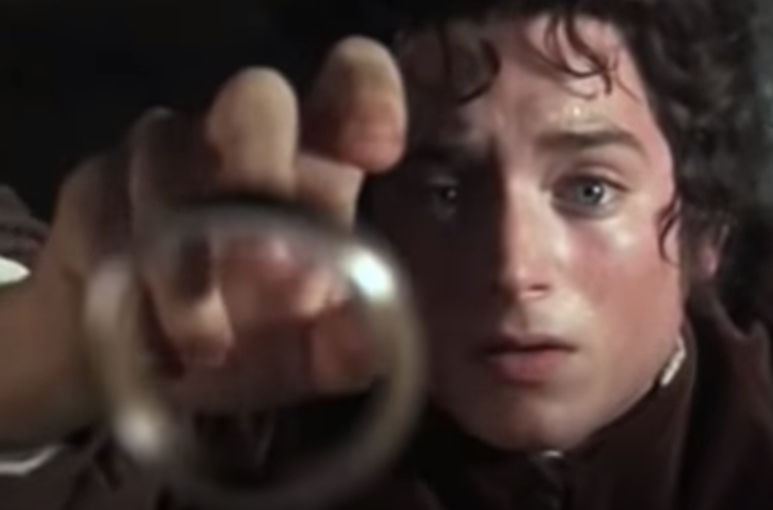
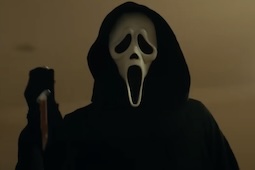
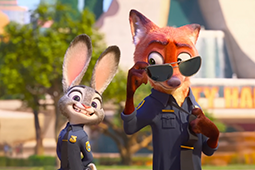
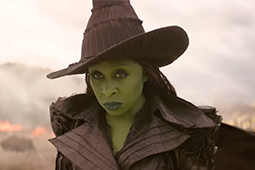
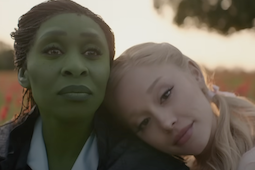
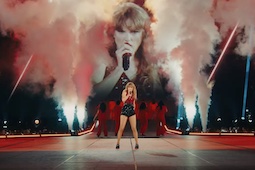
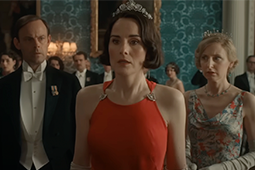
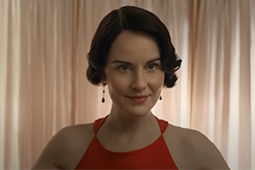
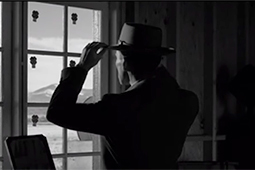



.jpg)
.png)



